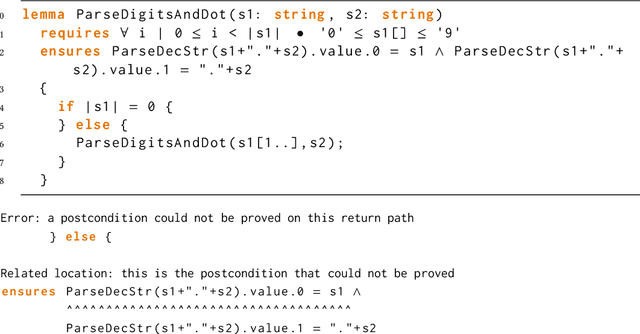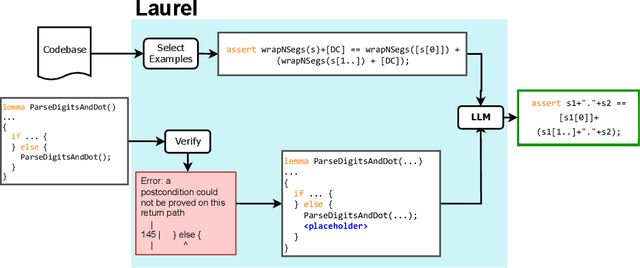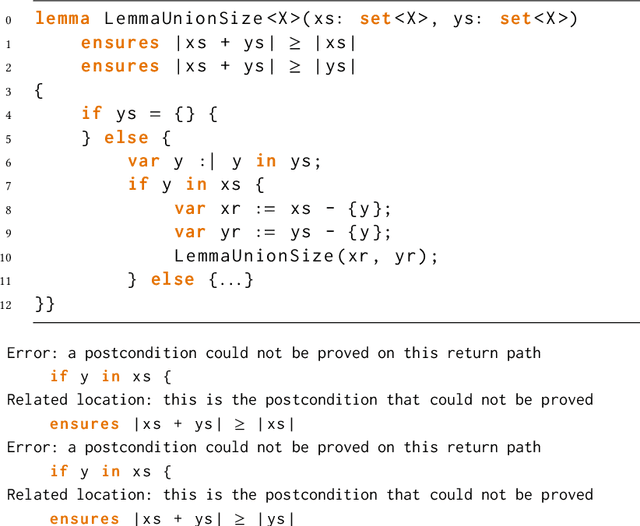Emmanuel Anaya Gonzalez
Constrained Sampling for Language Models Should Be Easy: An MCMC Perspective
Jun 06, 2025Abstract:Constrained decoding enables Language Models (LMs) to produce samples that provably satisfy hard constraints. However, existing constrained-decoding approaches often distort the underlying model distribution, a limitation that is especially problematic in applications like program fuzzing, where one wants to generate diverse and valid program inputs for testing purposes. We propose a new constrained sampling framework based on Markov Chain Monte Carlo (MCMC) that simultaneously satisfies three core desiderata: constraint satisfying (every sample satisfies the constraint), monotonically converging (the sampling process converges to the true conditional distribution), and efficient (high-quality samples emerge in few steps). Our method constructs a proposal distribution over valid outputs and applies a Metropolis-Hastings acceptance criterion based on the LM's likelihood, ensuring principled and efficient exploration of the constrained space. Empirically, our sampler outperforms existing methods on both synthetic benchmarks and real-world program fuzzing tasks.
Laurel: Generating Dafny Assertions Using Large Language Models
May 27, 2024



Abstract:Dafny is a popular verification language, which automates proofs by outsourcing them to an SMT solver. This automation is not perfect, however, and the solver often requires guidance in the form of helper assertions creating a burden for the proof engineer. In this paper, we propose Laurel, a tool that uses large language models (LLMs) to automatically generate helper assertions for Dafny programs. To improve the success rate of LLMs in this task, we design two domain-specific prompting techniques. First, we help the LLM determine the location of the missing assertion by analyzing the verifier's error message and inserting an assertion placeholder at that location. Second, we provide the LLM with example assertions from the same codebase, which we select based on a new lemma similarity metric. We evaluate our techniques on a dataset of helper assertions we extracted from three real-world Dafny codebases. Our evaluation shows that Laurel is able to generate over 50% of the required helper assertions given only a few attempts, making LLMs a usable and affordable tool to further automate practical program verification.
HYSYNTH: Context-Free LLM Approximation for Guiding Program Synthesis
May 24, 2024Abstract:Many structured prediction and reasoning tasks can be framed as program synthesis problems, where the goal is to generate a program in a domain-specific language (DSL) that transforms input data into the desired output. Unfortunately, purely neural approaches, such as large language models (LLMs), often fail to produce fully correct programs in unfamiliar DSLs, while purely symbolic methods based on combinatorial search scale poorly to complex problems. Motivated by these limitations, we introduce a hybrid approach, where LLM completions for a given task are used to learn a task-specific, context-free surrogate model, which is then used to guide program synthesis. We evaluate this hybrid approach on three domains, and show that it outperforms both unguided search and direct sampling from LLMs, as well as existing program synthesizers.
 Add to Chrome
Add to Chrome Add to Firefox
Add to Firefox Add to Edge
Add to Edge